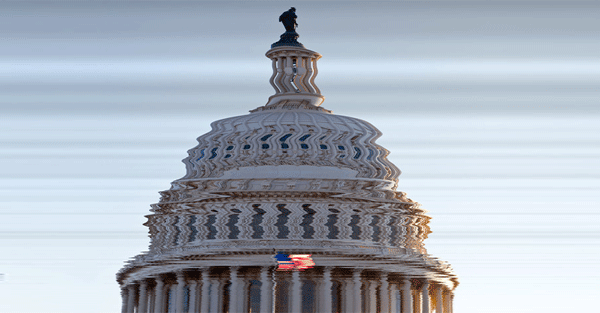
Republicans expanded their majority in the Senate, and Democrats took the House.
Surely this will cause more gridlock. Less will get done. Fewer bills will pass. Each side’s agenda will be watered down.
And that is about the best results we could hope for.
The less that gets done the better. For everyone.
Calvin Coolidge was the last President to understand this… or at least to care.
Every President tries to leave his mark on the country. But usually, it is a blemish.
President from 1923-1929, Calvin Coolidge said, “It is much more important to kill bad bills than to pass good ones.”
He was famous for his vetoes.
And that’s why history hardly remembers him. Because he wasn’t desperate for attention and recognition. He was actually a steward of what he believed to be the best interests of the American people. And the economy boomed during his tenure.
Other Presidents have reduced taxes. But Coolidge actually cut spending while cutting the income tax rate in half. Reducing taxes without cutting spending only adds debt… kicking the disaster down the road.
Instead, he paid down the debt. Coolidge was the last President to leave office with a smaller debt than when he started.
No President since has reduced the overall debt of the United States.
Of course, gridlock can also make it hard to undo things.
The US government is supposed to grind to a halt without action.
That is why things like the filibuster were built into Congressional procedings. A fillibuster is when a member of Congress takes the podium, and talks and talks in an attempt to prevent a vote.
This is a tool in the toolbox to cause more gridlock, and prevent all but the most important bills with mass support from passing.
If we were lucky, not a single piece of legislation would pass in the next two years. Imagine that, a two-year government shut down… Unfortunately not all that much actually shuts down during a government shut down.
The left and right do tend to end up “compromising.” They both agree to increase spending even more, increase the debt, and the powers of the surveillance and police state grow.
One definition of compromise: “to cause the impairment of.”
The USA was long ago compromised.
The US government has turned into a ghost train. You can speed it up but you can’t slow it down.
And this wouldn’t be a problem if we could simply step off, and not have to be riding when it crashes.
You Got to be Invested
The whole problem stems from public property, common ownership. When you have multiple owners of the same property, problems will inevitably arise.
That’s why companies sell shares. A share usually entitles the investor to a vote. The shareholder gets a stake in how the company will be run. Voice.
If he doesn’t like the direction the company is going, he can sell his stake in it.
Shareholders vote, but they can also exit. And that is the main difference between government and private business. The ability to “exit,” and withdraw your support.
Customers are in a similar position. They vote to support a business by spending money there. But they can exit the relationship by not patronizing the business. They can take their “no vote” a step further by leaving a bad review, or boycotting the business.
Josiah Warren (1798-1874) was an early American free thinker, and abolitionist. He actually founded towns based on voluntary government.
In The Practical Anarchist edited by Crispin Sartwell, Warren gives two examples (not from the towns he founded) of schoolhouses that were built by the community as common property.
In one case the people who had pleasantly joined together to build the school erupted into a feud, almost immediately after finishing the project, about who to hire as the teacher.
Someone involved burnt the schoolhouse down in the night to “solve” the dispute.
In the other case, the people also could not agree on how to govern the school they built together. One man took a team of oxen and dragged “his” log from the school, which of course destroyed the building.
But the log was his contribution to the building, and it wasn’t going to be run the way he wanted. So he divested himself.
If the school had simply been set up as a business it would have been up to the owner how to run it. He probably would have based those decisions on what his customers wanted.
They still would have come together for the common goal, but each person would have made the investment with clear conditions.
As an investor, the condition would be that you get a vote in how to run the school.
The school owner may still have alienated some people based on how he decided to run the business. But instead of them coming to retrieve “their” log from the side of the building, they could have simply chosen not to send their child to his school.
That is why when things are commonly owned, like a business, you must have a prescribed way to divest yourself, as with shares, to avoid the bitter disputes which end in the destruction of the common property.
And what is happening right now in America?
People are figuratively pulling our the logs they gave to build the schoolhouse.
They just want to burn it all down, because of the betrayal they feel in how their common property is being governed.
Gridlock in Congress doesn’t reverse this trend, but it might stop it from accelerating. And in the meantime, we can focus our efforts on things that might actually solve the problems, because clearly, elections are not doing the trick.
“Responsibility must be individual, or there is no responsibility at all.” -Josiah Warren
